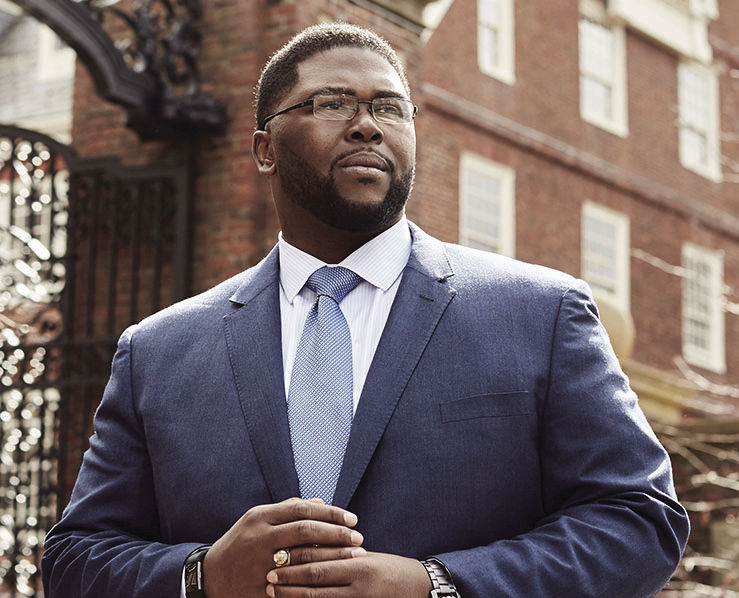Harvard Professor Begins Dialogue on Diversity and Inclusion
Harvard University Professor Dr. Anthony Jack spoke on his new book, The Privileged Poor: How Elite Colleges Are Failing Disadvantaged Students in the Memorial Chapel on October 7. Jack, a graduate of Amherst College and Harvard University, shared his own experiences as a lower-income, first generation and minority student on the campus of an elite college. He used his experience to discuss the ways colleges and universities often fail in supporting their underprivileged, lower-income and first generation students.
Jack discussed how elite educational institutions in America are still dominated by wealthy and privileged students, pointing out that one in two undergraduates in the United States are the first in their families to go to college, but only 14 percent of the students at the most elite institutions come from the bottom half of the income distribution. In addition, 38 colleges in America have more students from the top one percent than the bottom 60 percent, including Colgate.
Jack spoke on the strategies many colleges are using to level the playing field for underprivileged students, expressing that while talent is equally distributed, opportunity is not. In 1998, Princeton University was the first in the United States to adopt a no-loan financial aid policy, where any loans in financial aid packages are replaced with institutional grants. Colgate adopted a similar no-loan initiative for students with family incomes under 125,000 dollars as part of its Third Century Plan, which begins in the 2020-2021 academic year.
Jack said that while no-loan policies are important and welcomed, generous financial aid packages do not make for a diverse institution, and it is not enough for colleges to hand them out without continued support.
“Access ain’t inclusion,” Jack said.
Sophomore Sydney Walters, who attended the lecture to reflect upon the flaws in diversity and inclusion at Colgate, said she felt this was an important sentiment.
“Just opening the gates isn’t enough–doors must be kept open too. It isn’t enough to accept these students in if they aren’t ever able to feel like Colgate is their home. More steps need to be taken,” Walters said.
Seeking to investigate the ways that institutionalized inequality affects college students and their experiences in his work, Jack interviewed students on campuses across the country.
“To overlook the rich diversity in the experiences of [first-generation] college students is to paint only a partial picture,” Jack said.
Participants of Colgate in Focus, a program presented by the Office of Admission which brings high-achievinghigh school seniors from underrepresented backgrounds to campus for a multi-day visit, attended Jack’s lecture.
Adwoa Nkansah, a participant of the Colgate in Focus program, said she enjoyed hearing the Harvard University professor speak about such a personal topic.
“It was very interesting to hear my experience being spoken about from an academic standpoint,” Nkansah said.
Jack discussed the disadvantages underprivileged students often face in high school, putting them at, what Jack called, doubly disadvantaged.
“[These students] are doubly disadvantaged before they ever step foot on their college campus.” Jack said that situations like office hours can be a point of confusion and anxiety for students that have not had opportunities in the past to personally interact with their teachers,” Jack said. “Colleges need to be proactive.”
Eric Forteza, a prospective student who also attended the event through the Colgate in Focus program, said he found it interesting and helpful to hear Jack enumerate specific situations in which certain students can be at a disadvantage.
“Colgate in Focus explains that administration will support us, but they never say just how difficult it will be to be a college student from a disadvantaged background,” Forteza said.
Jack concluded the discussion about diversity by encouraging Colgate students to speak up to the administration.
“Dare to demand as much from Colgate as Colgate demands from you,” Jack said.











